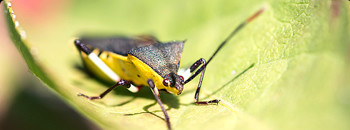
Bees pollinate more than 16 percent of flowering plant species[i], including those found in yards, landscapes and parks in our communities and across our country. During Pollinator Week – June 16-22, 2014, and all year long – each of us can take action to understand the many factors contributing to bee health, and make a difference by promoting pollinator health in our own backyards.
“National Pollinator Week gives each of us the opportunity to step outside and survey our lawn and landscapes to see how we can contribute to long-term bee health,” said Karen Reardon, vice president, public affairs, at RISE (Responsible Industry for a Sound Environment)®. “One way we can promote bee health is by creating an inviting habitat with an abundant source of food to ensure bees can meet their nutritional needs to survive and thrive.”
Government officials and scientists agree bee health is a complicated and long-standing concern—one that dates back to the 1800s. For example, The National Stakeholders Conference on Bee Health in 2013 reported the Varroa mite, a parasite that feeds on bee larva and attaches itself to adult bees, remains the “single most detrimental pest of honey bees.”[ii]
“Our industry is doing its part to address stressors on bee health as well,” said Reardon.
To learn more about the many factors affecting bee health and how we can work together to support their long-term health, visit www.debugthemyths.com. Join the conversation on Facebook and Twitter with hashtag #BeeResponsible.
About RISE
Located in Washington, D.C., RISE is the national association representing the manufacturers, formulators, distributors, and other industry leaders involved with pesticide and fertilizer products used in vector control, pest control, turf, ornamental, aquatic and terrestrial vegetation, and other non-food/fiber applications. Learn more about RISE at www.debugthemyths.com.
[i] http://interests.caes.uga.edu/insectlab/agimpact.html
[ii] http://www.ces.ncsu.edu/wp-content/uploads/2013/10/2.03-copy.pdf

